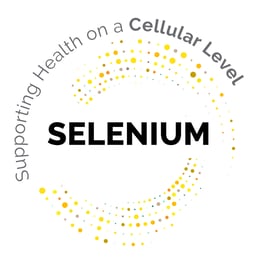|
A recent study with subfertile women and women diagnosed with PCOS shows positive correlation between Selenium levels and fertility.
Concentration of trace elements Selenium, Zinc, and Copper was examined in a total of 40 women with fertility troubles, which have become more common, worldwide. The article Pronounced Trace Element Variation in Follicular Fluids of Subfertile Women Undergoing Assisted Reproduction breaks down the significant findings of the positive influence these trace elements may have on fertility in both women and men.
|

Key points from the article:
- An estimated 48-72 million couples worldwide suffer from infertility, with around half not knowing why
- The primary reasons for subfertility are ovarian insufficiency or polycystic ovary syndrome (PCOS) - the most common hormonal disorder of women of reproductive age, negatively affecting fertility in about 75% of patients
- Of the trace elements, selenium (Se), zinc (Zn), and copper (Cu) have “emerged as the most essential micronutrients for both female and male fertility,” (p2) and so measuring the levels of these three trace elements in serum and follicular fluid (FF) was the primary goal of this recent publication
- The study measured Se, Zn, and Cu levels in the serum and FF in subfertile women – 20 with PCOS and 20 without
- Significant correlation was found between Se levels in the serum and FF as well as the other two trace elements (Se levels in FF being less than 50% that of the serum)
- “There are strong indications that Se influences the growth, maturation, and replication of oocytes, though the precise mechanisms have not as yet been fully elucidated.” “Higher maternal Se concentrations have been associated with lower risk of miscarriage, preterm birth, pre-eclampsia and autoimmune thyroid disease.”
- Among the study’s participants, 8 women in the subfertile group and 7 women in the PCOS group achieved pregnancy
Reference: Schmalbrock LJ, Weiss G, Rijntjes E et al. Pronounced trace element variation in follicular fluids of subfertile women undergoing assisted reproduction. Nutrients Nov 19, 2021; 13:4134